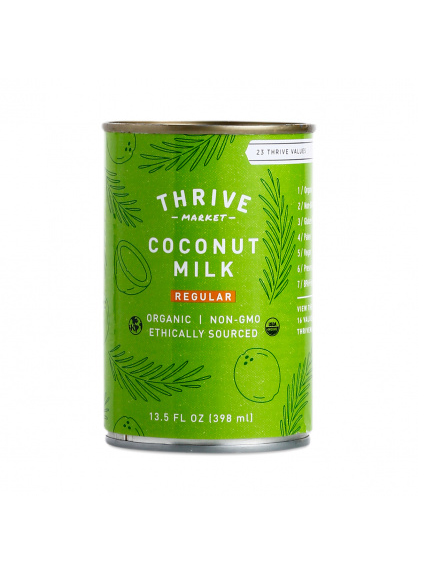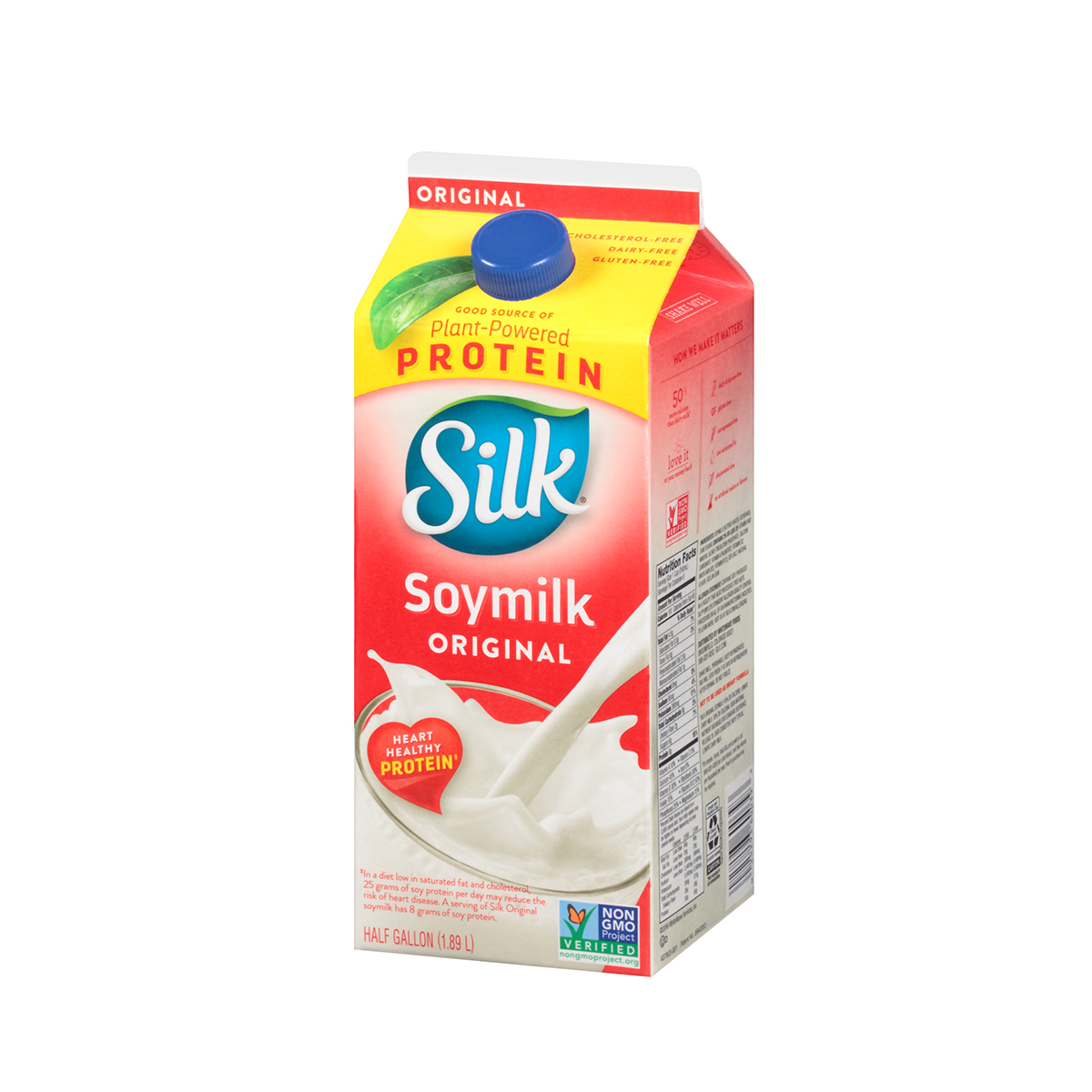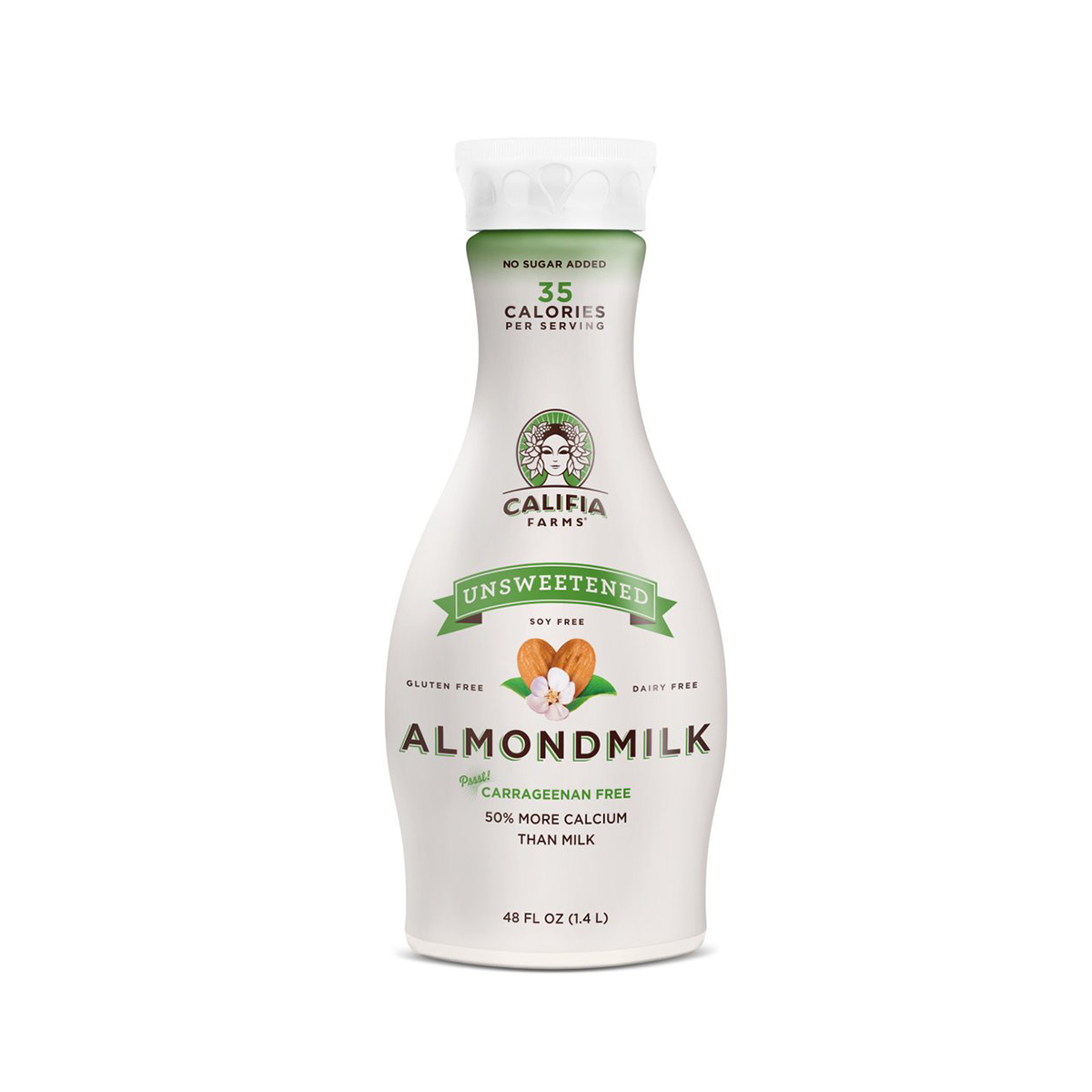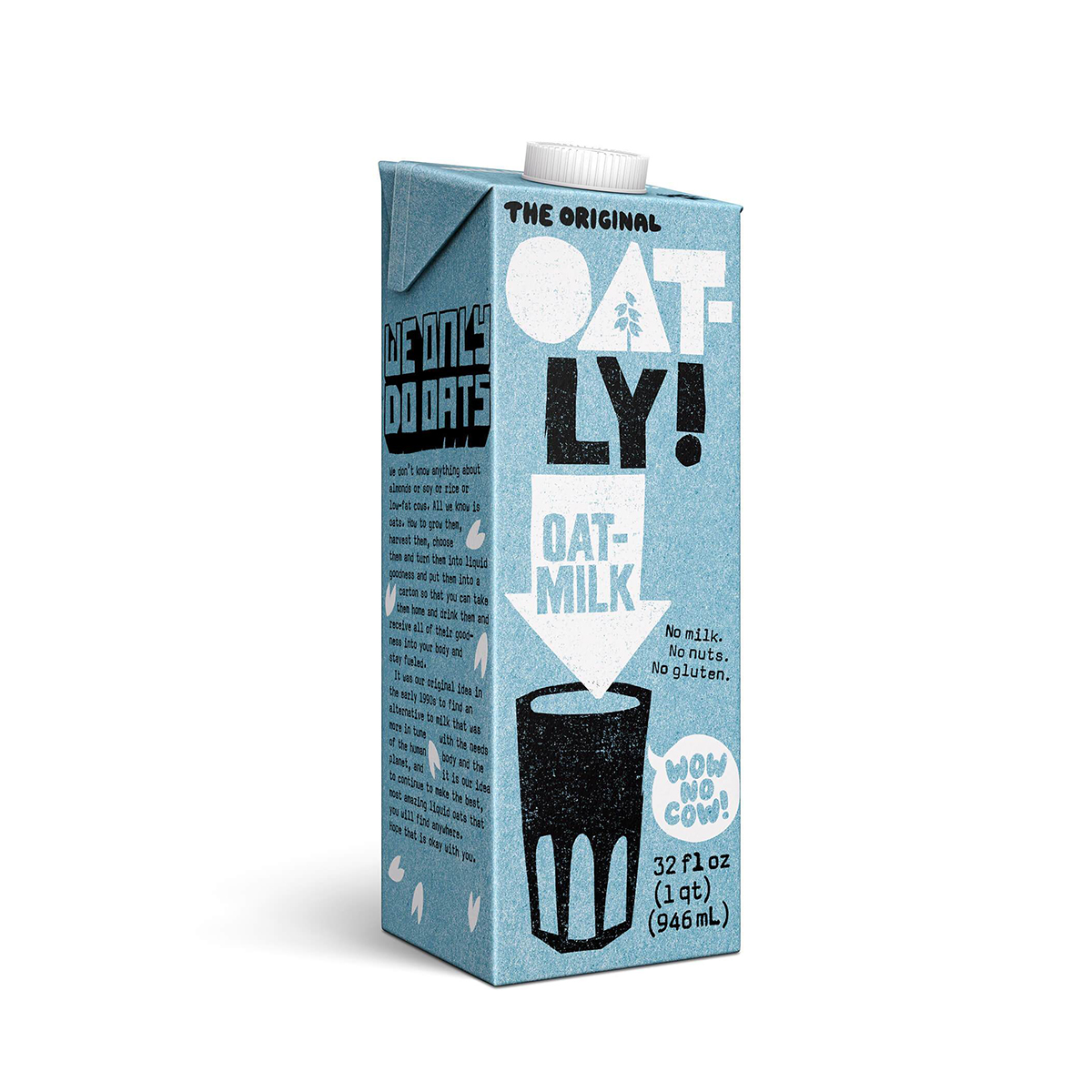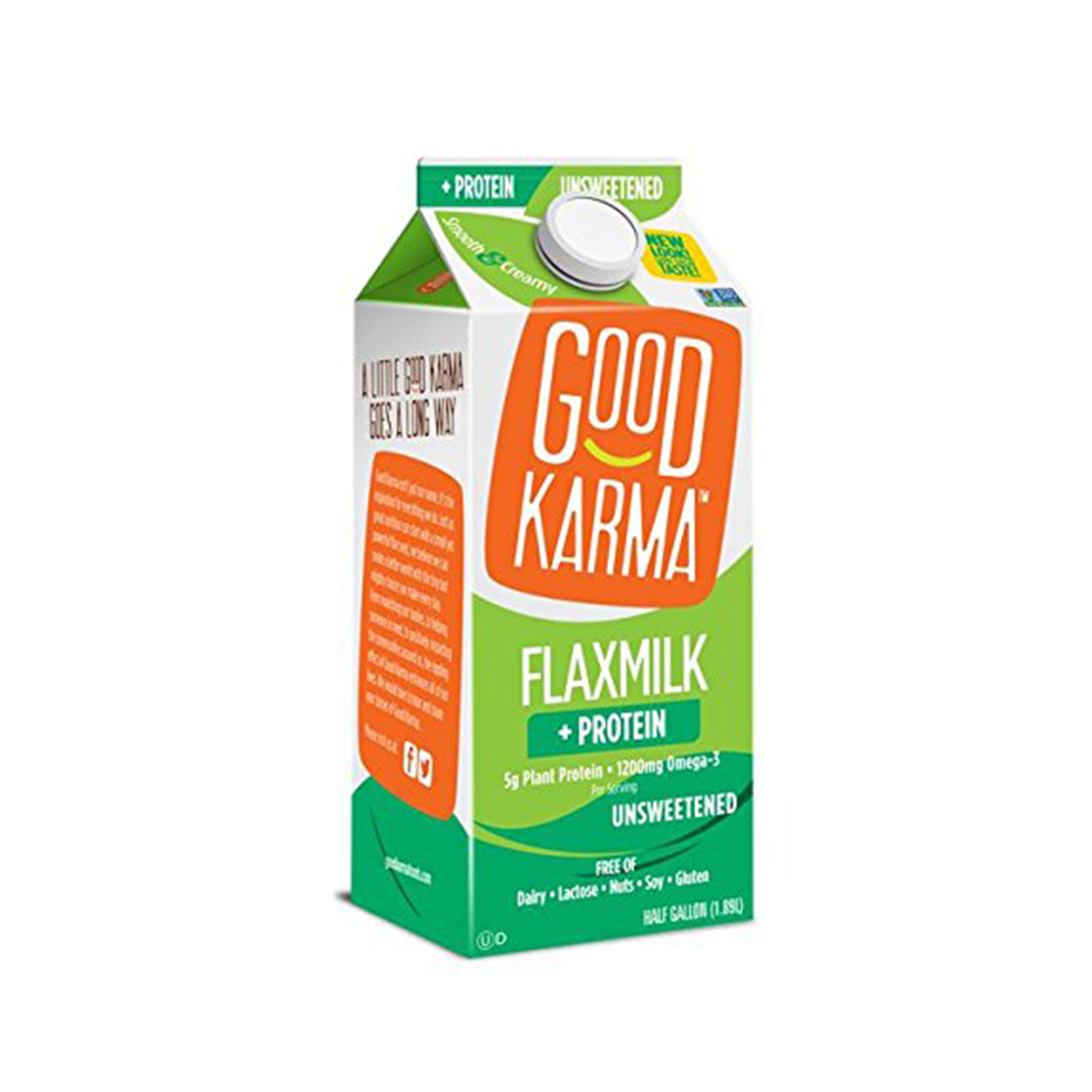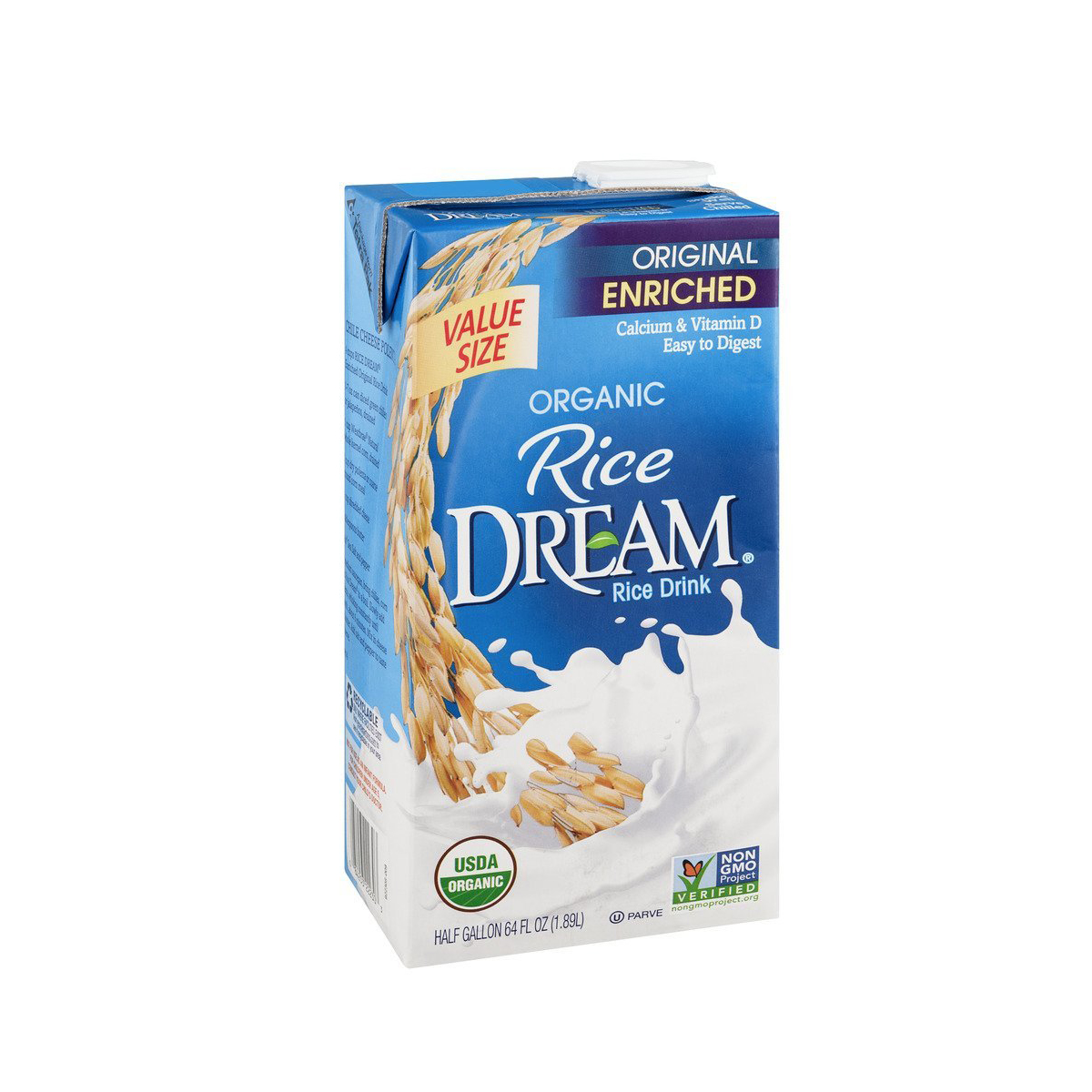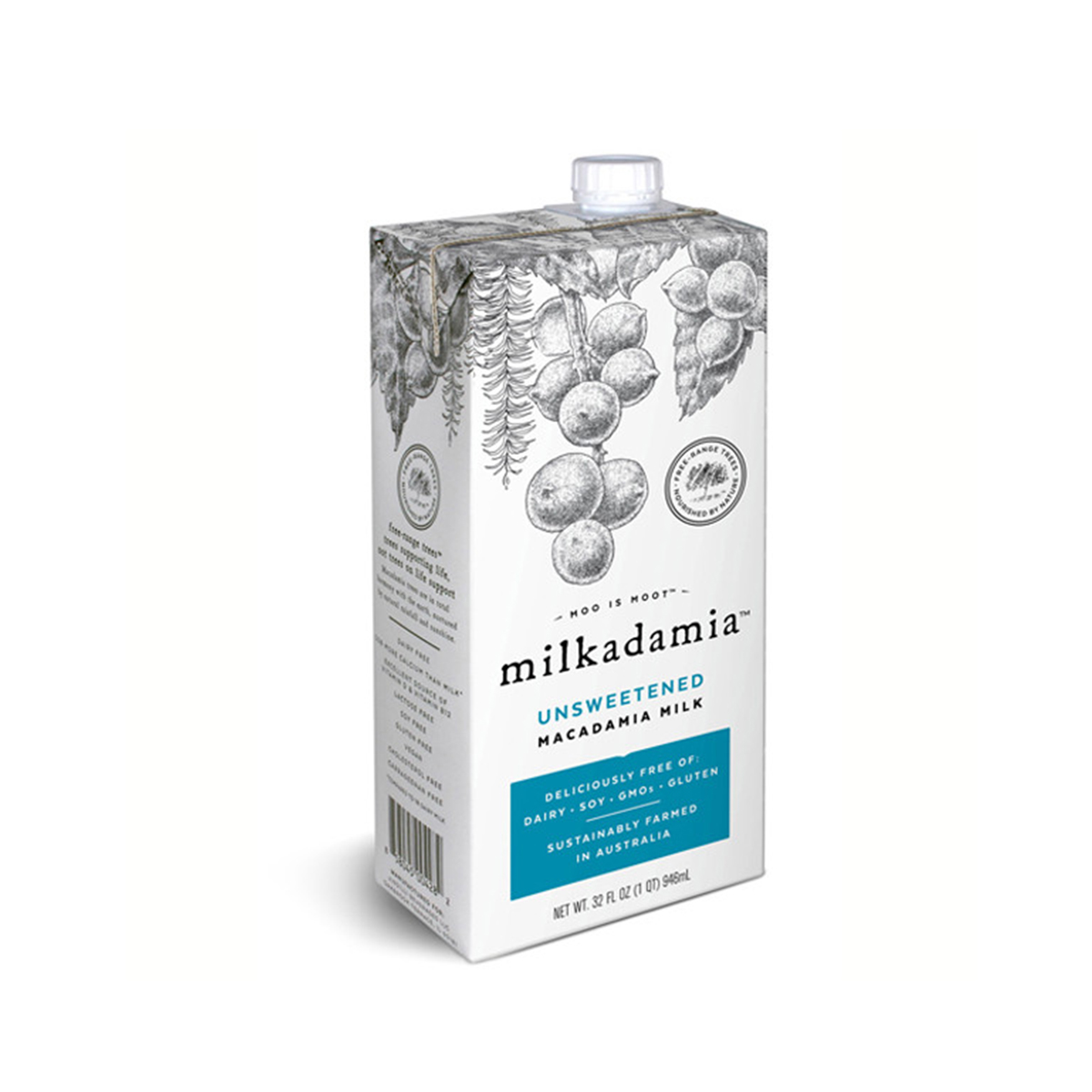The Definitive Guide to Milk Alternatives (and How Healthy They Really Are)

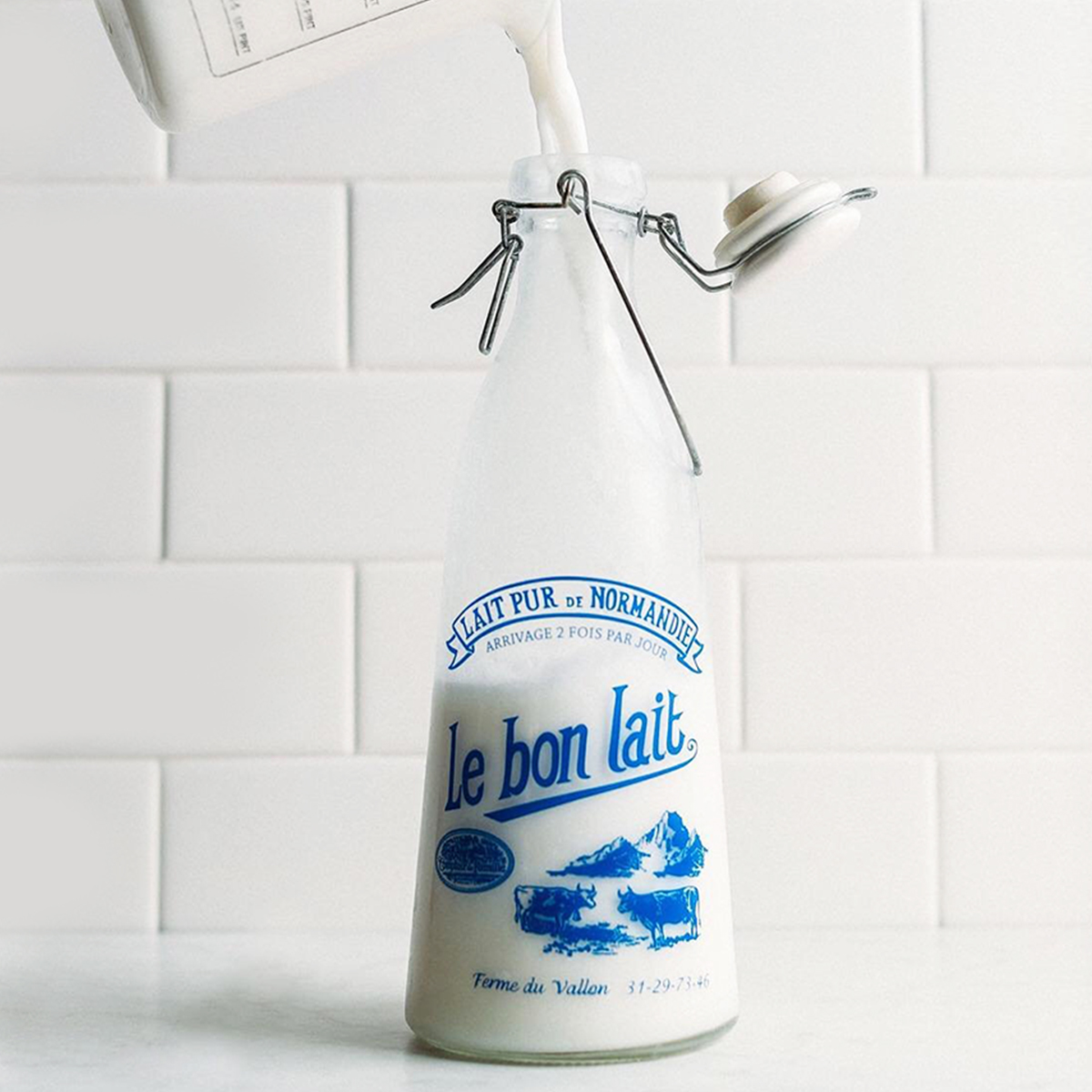
Confession time: I once ordered a very expensive drink from one of L.A.'s trendiest coffee shops, Rubies+Diamonds, and just expected it to come with a non-dairy milk. It didn't even cross my mind to specify coconut milk because who even drinks regular milk anymore? (I kid, I kid. Mostly.) It was only after I had consumed the whole thing and got a stomachache that I realized the reason it tasted so amazing was that it had been made with real milk. There was once a time in the not-too-distant past where cow's milk was the norm, and the only readily available milk alternative was soy milk. Now, there are so many options for non-dairy milk alternatives that it's almost weird when people order soy or—gasp!—whole milk.
"I think people are becoming more conscious to the fact that what we eat has a profound effect on our health and changing our diet is one way to take control of it," registered dietitian and nutritionist Whitney English of Whitney E. RD says. "Research suggests that decreasing your intake of animals and animal products may reduce disease risk and improve many health conditions, which is why many people are cutting cow's milk out of their diets," she says.
She adds that 90% of people worldwide aren't genetically engineered to process lactose—so cutting it out can help with digestive issues.
Pro tip: No matter which non-dairy milk you choose, English recommends choosing one that's organic and non-GMO. Choose a product that doesn't contain carrageenan, she adds, because this seaweed-derived food stabilizer can cause digestive issues. Also, look for one that doesn't contain added sugar.
Whether you're an almond milk latte connoisseur or new to the world of milk alternatives, here's a definitive guide to the most popular non-dairy milk alternatives.
Coconut milk
The popularity of coconut milk is beginning to rival that of almond milk, and we're okay with that. While "coconut milk beverages" like So Delicious are increasingly popular, you also haven't lived until you've put a tablespoon of full-fat coconut milk in your coffee—or, better yet, made overnight oats with it. It literally tastes like the "yassssss" GIF you can add to your Instagram Stories. Plus, coconut milk is packed with healthy fats as well as nutrients like manganese, magnesium, and iron.
Calories: 198
Protein: 2 grams
Fat: 18 grams
Carbs: 7 grams
Soy milk
This is the OG non-dairy milk alternative. English likes it because, as she says, it is the most nutritionally equivalent substitute to cow's milk in terms of protein, vitamins, and minerals. "Additionally, soy milk contains phytochemicals known as isoflavones that have shown to possess anti-cancer and anti-inflammatory properties," she says.
Calories: 80
Protein: 7 grams
Fat: 4 grams
Carbs: 4 grams
Almond milk
AKA the non-dairy milk alternative that dethroned soy milk. It's typically lower in fat and calories than other alt milks and has a pretty mild flavor. With all the other options out there, it's kind of been moved to basic status, but we admittedly still enjoy it.
Calories: 35
Protein: 1 gram
Fat: 3 grams
Carbs: 1 gram
Oat milk
In-the-know coffee shops like Blue Bottle are starting to carry this unique non-dairy milk. It's made by soaking whole or steel-cut oats and then straining them through a cheesecloth to get the "milk." The end result is super creamy and tastes amazing in lattes.
Calories: 130
Protein: 4 grams
Fat: 2 1/2 grams
Carbs: 24 grams
Flax milk
Okay, at first this might sound a little weird (but, hey, we used to think milk made from almonds was weird). Flax milk is surprisingly nutritious—just be sure to choose an unsweetened option—because it contains a ton of omega-3 fatty acids. These are good fats that can help reduce inflammation.
Calories: 25
Protein: 0 grams
Fat: 2 1/2 grams
Carbs: 1 gram
Rice milk
This is a solid option for people who have allergies, because it doesn't contain common allergens like milk, soy, or nuts. However, it should be noted that it is higher in carbohydrates and lower in protein than other options.
Calories: 120
Protein: 1 gram
Fat: 2 1/2 grams
Carbs: 23 grams
Macadamia nut milk
Dare we say this is better than almond milk? The flavor is pretty milk-like, and it manages to be creamy and fatty without the heft (and fat content) of, say, coconut milk.
Calories: 50
Protein: 1 gram
Fat: 5 grams
Carbs: 1 gram
Next up: Meet the revolutionary "diet" that helped one editor lose 10 pounds.
Disclaimer
This article is provided for informational purposes only and is not intended to be used in the place of advice of your physician or other medical professionals. You should always consult with your doctor or healthcare provider first with any health-related questions.
-
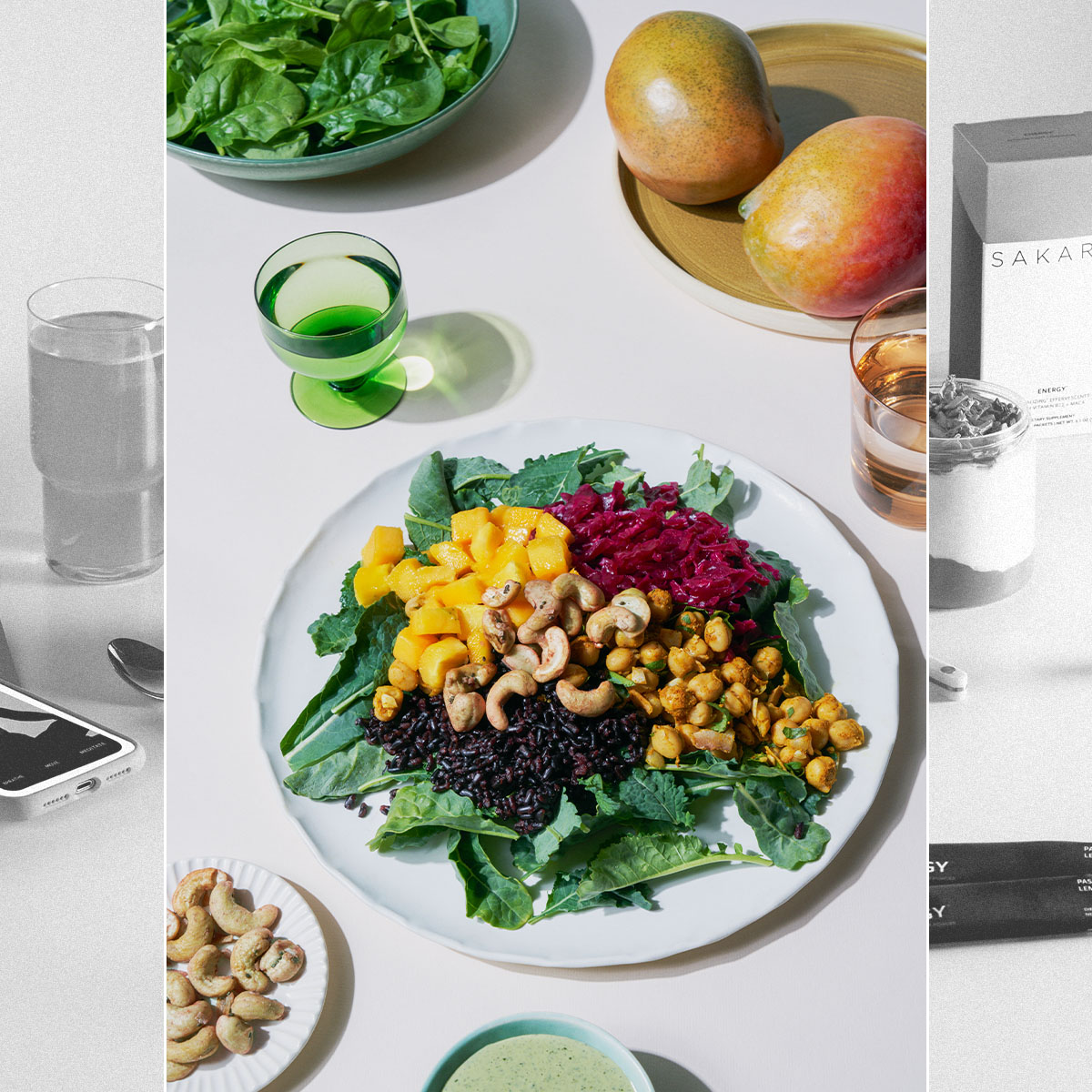 Bella Hadid and Gwyneth Paltrow Apparently Love Sakara Life, so We Tried It for 30 Days
Bella Hadid and Gwyneth Paltrow Apparently Love Sakara Life, so We Tried It for 30 DaysHere are our honest thoughts.
By Erin Jahns
-
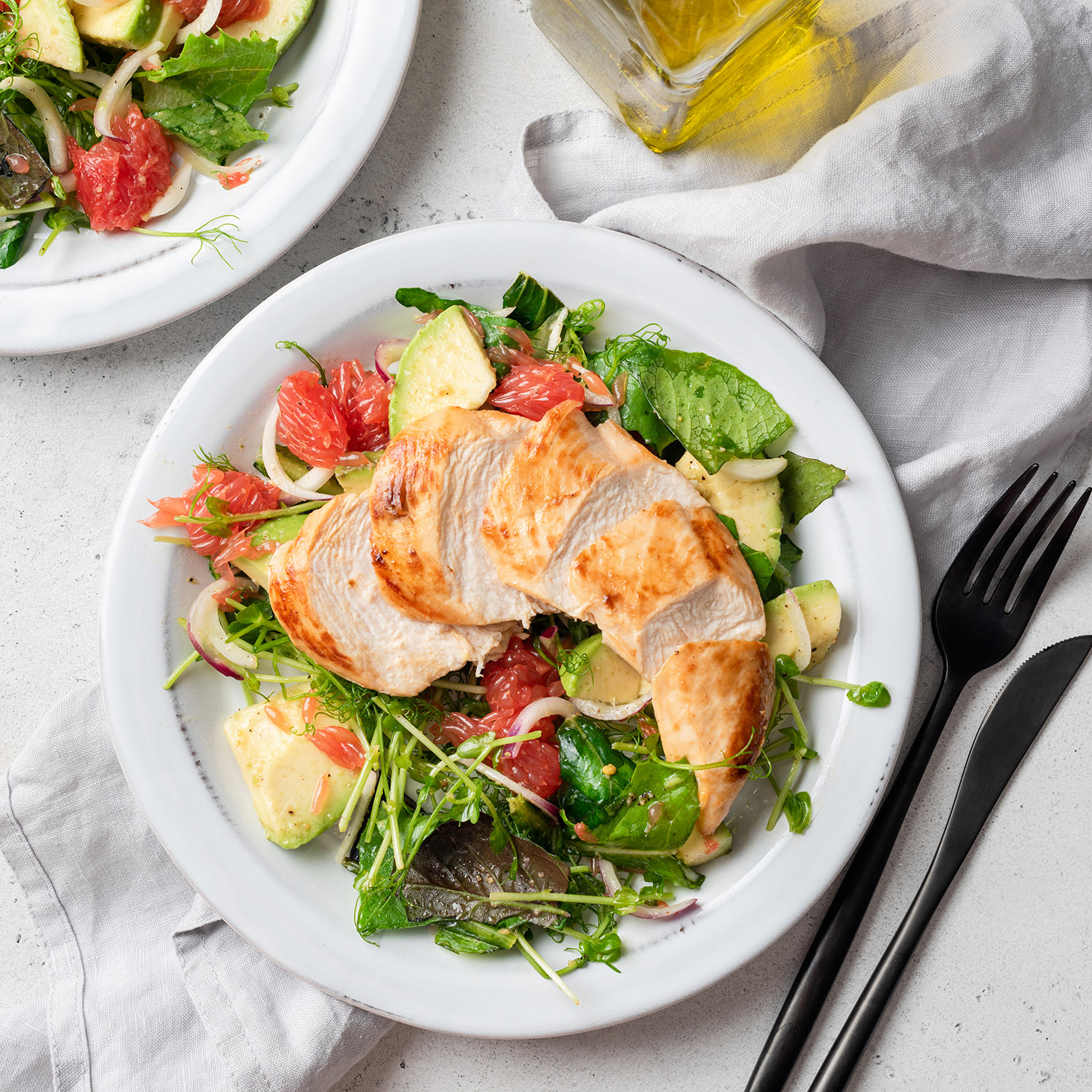 The 6 Warning Signs You're Not Getting Enough Protein
The 6 Warning Signs You're Not Getting Enough ProteinAnd what to eat to up your intake.
By Sarah Yang
-
 Everything This Professional Ballet Dancer Eats to Fuel Her for Performances
Everything This Professional Ballet Dancer Eats to Fuel Her for PerformancesHer grocery staples include high-quality French butter.
By Candice Aman
-
 These 8 Foods Are the Worst for Rosacea—Here's What to Eat Instead
These 8 Foods Are the Worst for Rosacea—Here's What to Eat InsteadControl those flare-ups.
By Sarah Yang
-
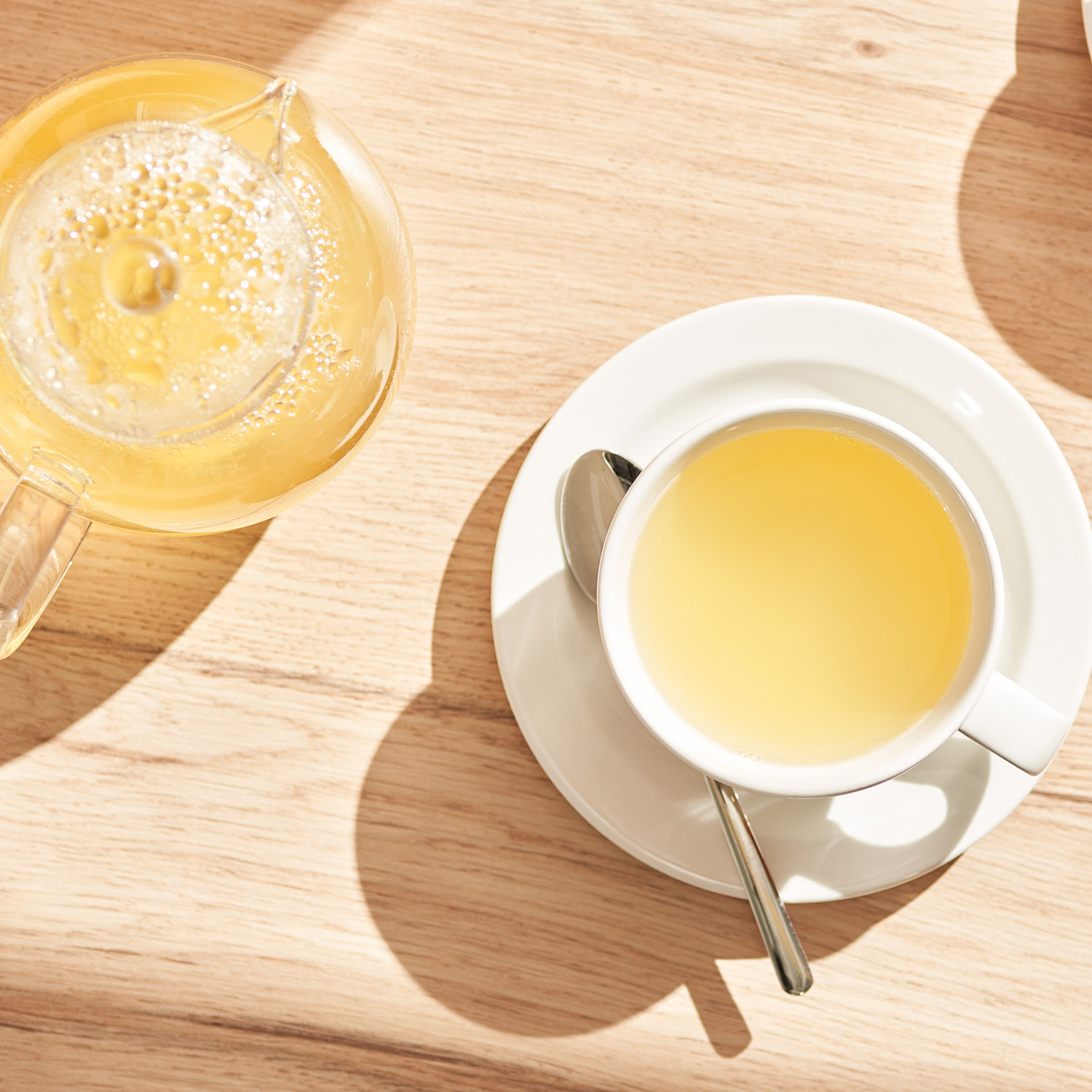 15 Things That Cause Bloating and How to Get Rid of It ASAP
15 Things That Cause Bloating and How to Get Rid of It ASAPTry these.
By Sarah Yang
-
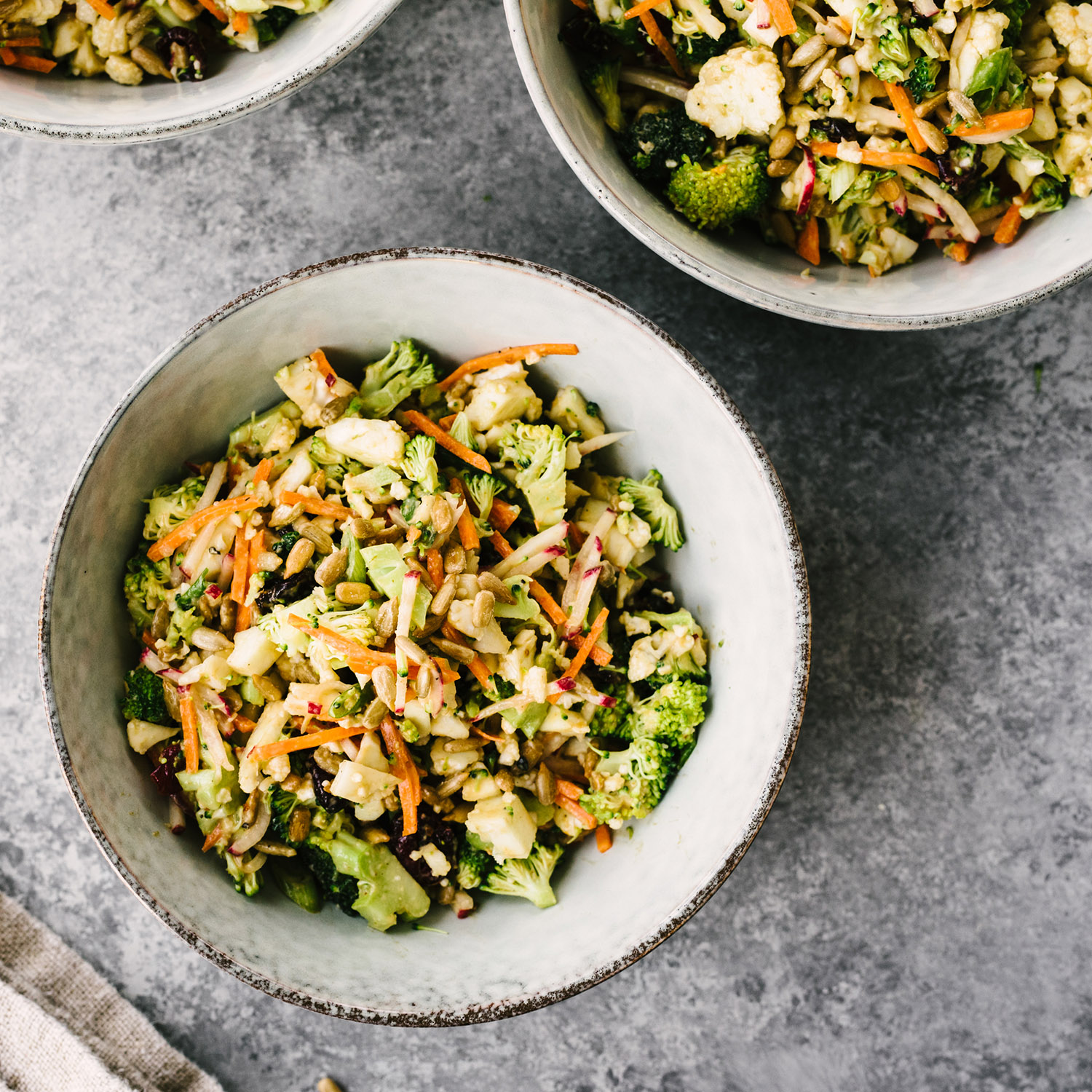 Is the Alkaline Diet Overhyped? What Experts Want You to Know
Is the Alkaline Diet Overhyped? What Experts Want You to KnowHere's how it works.
By Sarah Yang
-
 I'm an Imperfect Dietitian and My Key to Eating Healthy Meals Is Convenience
I'm an Imperfect Dietitian and My Key to Eating Healthy Meals Is ConvenienceTake a peek at my weekly grocery staples.
By Candice Aman
-
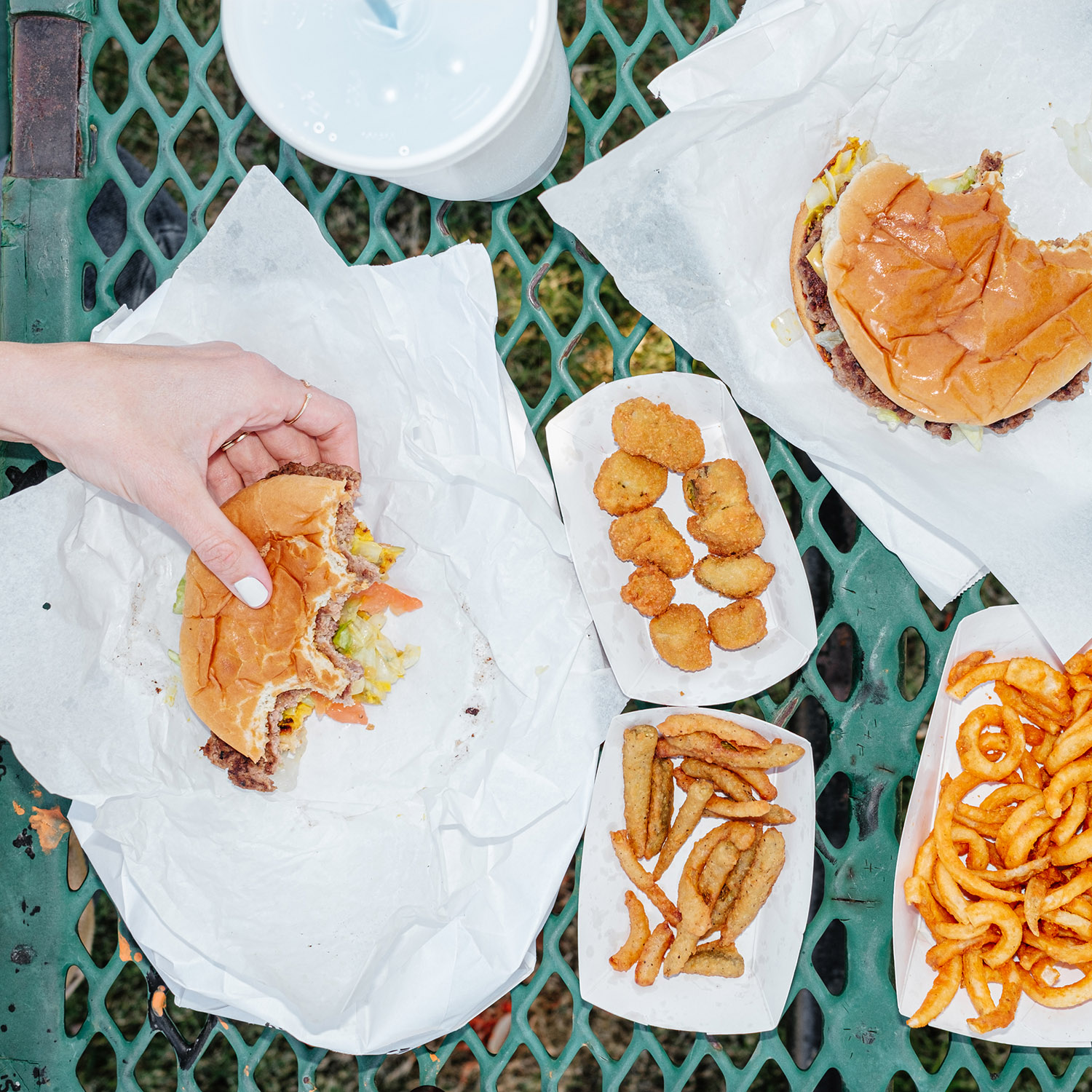 Avoid These 6 Foods—They'll Wreck Your Gut Health
Avoid These 6 Foods—They'll Wreck Your Gut HealthWhat to eat instead.
By Sarah Yang
